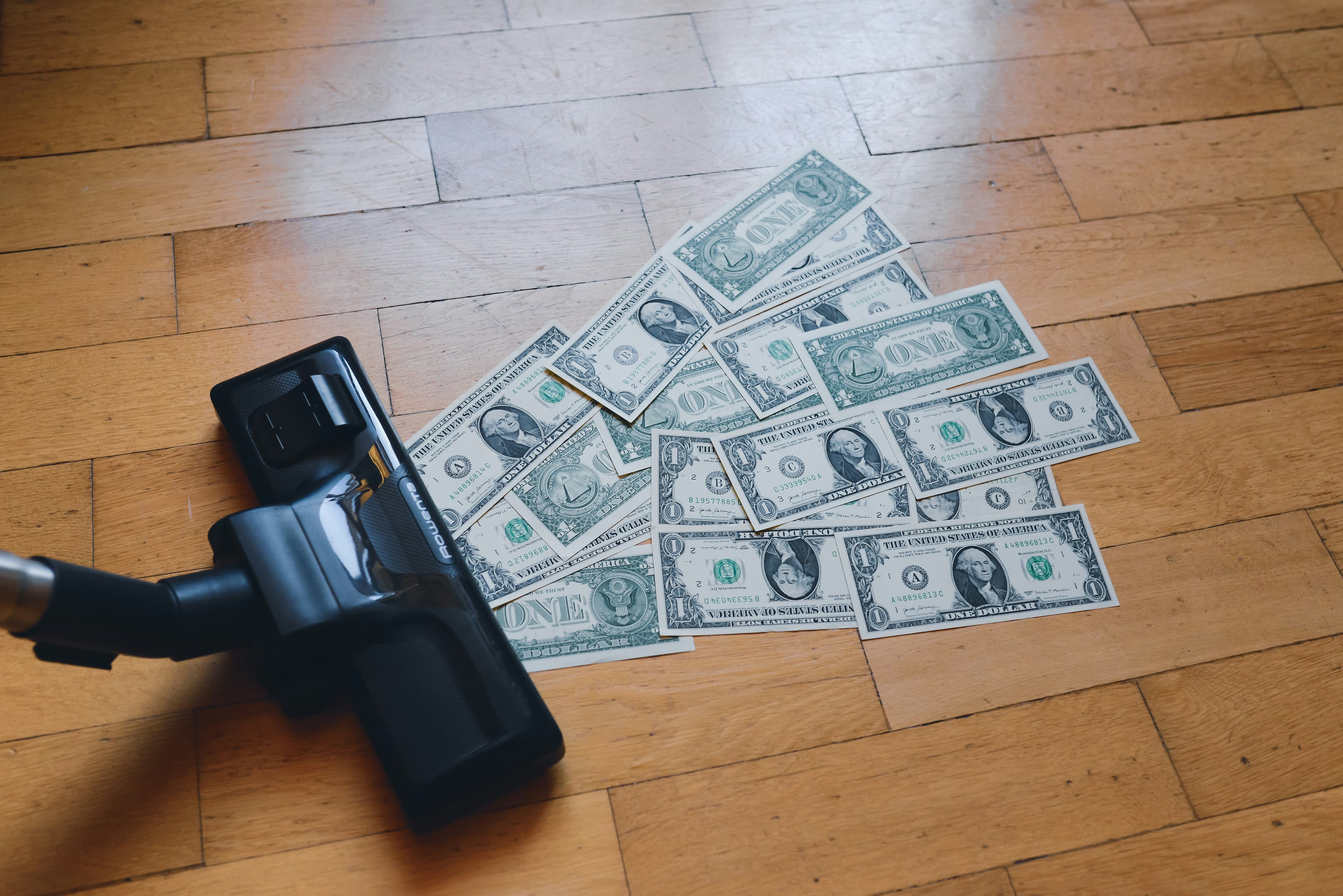The Money Side of Finding Your Next Apartment

Moving is a big deal. Whether you're heading across town for a better view or relocating to a new city for a fresh start, the excitement can quickly get overshadowed by the financial details. The more you understand the real costs involved, the smoother the entire process will be.
Figuring Out What You Can Actually Afford
Before you start scrolling through listings, take a moment to figure out what you truly need in a living space. Are you looking for your first place or an upgrade? Think about your non-negotiables, like needing to be near public transit or having a pet-friendly building. Knowing your must-haves helps you immediately filter out places that won’t work.
If your search in your price range comes up empty, you might need to get creative. Consider renting a room in a shared house, finding a roommate for an apartment, or looking at smaller studio or efficiency units.
No matter what, you’ll need a decent amount of cash saved up before you can sign a lease. Plan on having at least two months' rent ready to go: one for the security deposit and one for the first month's rent. Some landlords even ask for the last month's rent upfront, bringing the total to three months' worth. A few extra on the side can definitely help build up that fund faster.
A good rule of thumb is to keep your housing costs at or below 30 percent of your gross income. For example, if you make $35,000 a year, you should aim for a rent of no more than $875 per month. You’d be in an even better financial position if you could keep it around 25 percent, or $729 a month. Of course, if some utilities are included, you might have a bit more wiggle room in your budget.
How to Find Your Next Place
If you’re staying in your current town, you probably have a good idea of the apartment options. It gets trickier when you’re moving to a new city, especially if you can’t visit beforehand to hunt for a place. Here are a few ways to approach the search.
- If you know anyone in the area you’re considering, ask for their recommendations. They can give you the inside scoop on things you can't see during a walkthrough, like how loud the neighbors are or what the neighborhood feels like at night.
- Local newspapers are still a solid resource for rental listings. Don’t forget to pick up independent papers you might find at local coffee shops, as they often have a different selection of more affordable spots. Online, Craigslist is still a major player, as are the digital versions of local papers.
- Agents know the neighborhoods and apartment complexes inside and out. A quick internet search for “realtors” in your target city will give you plenty of options. Some agents even offer relocation packages with useful information about your new city.
- Companies like Apartments.com and ApartmentGuide.com specialize in compiling rental listings. They work directly with property managers to keep their information current, saving you the hassle of calling dozens of places yourself. The best services are free to use (some charge a hefty fee, so watch out) and let you filter by your specific needs. Many even have an agent follow up with you to help narrow the search.
Decoding the Lease Agreement
This is the most important part: read the fine print. Your lease is a binding contract, and you need to understand every rule and regulation before you sign. If there’s something in the lease you don’t agree with, try to negotiate with the landlord. If you both agree on a change, cross out the original text, write in the new terms, and make sure you both initial and date the change.
Never rely on a verbal agreement—it’s nearly impossible to prove later. If something is unclear, ask for an explanation. Don't be shy about asking questions; landlords expect them. Here are a few key things to clarify:
- Is there a manager on-site?
- What maintenance is the landlord responsible for, and what falls on me?
- How much notice is required before moving out?
- How is trash and recycling handled?
- Which utilities, if any, are included in the rent?
- Are there any conditions that would allow the rent to increase during the lease term?
Landlords will almost always run a credit check and look into your rental history, which usually comes with a small application fee ($10 to $35). They also need to verify your income is at least three times the monthly rent. For those with non-traditional income streams, this requires good and clear documentation. Solid means having organized records ready to prove your financial stability.
If you need to get out of your lease early, it can be tough. You could be on the hook for the rent for the entire remaining term. Ask if there are any exceptions, like a job transfer. Some landlords will let you break the lease for a fee, while others might allow you to sublet the apartment to someone else. A month-to-month lease offers more flexibility, but it also means the landlord can raise the rent or end the lease with very short notice.
Understanding Deposits and Other Fees
When you rent, you'll pay a security deposit, typically equal to one month's rent. The landlord holds this money to cover any cleaning, repairs beyond normal wear and tear, or unpaid rent when you move out. Most states have laws requiring landlords to keep these deposits in a separate account.
To ensure you get your security deposit back, document everything. During your first week, make a detailed list of any existing damage—chipped paint, stained carpets, broken knobs, etc. Take pictures. Send a copy of this list to your landlord and keep one for yourself. When you move out, clean the apartment thoroughly and repair any damage you caused. Ask the landlord for a final walkthrough and a signed statement on the apartment's condition. This diligence can save you a lot of headaches.
If you have a pet, expect to pay an additional pet deposit, which can range from $100 to another full month’s rent and may not be refundable. You may also need to pay deposits and hookup fees for utilities like electricity, gas, water, and cable.
Why You Absolutely Need Renters’ Insurance
Many renters mistakenly believe the landlord’s insurance covers their belongings. It doesn’t. The owner’s policy covers the building itself, not your personal property or your liability. If your bathtub overflows and damages the apartment below, you are responsible for the costs. If a guest is injured in your apartment, you could be sued.
Renters’ insurance covers all of this, and it’s surprisingly affordable. When you buy a policy, opt for coverage over . Replacement cost pays you what it would cost to buy a new, similar item. Actual cash value only pays you the depreciated value of your old belongings, which is often much less than you'd need to replace them.
The Financial Shock of Moving to a New City
If you're relocating, be prepared for differences in the cost of living. A great salary in one city might barely cover the bills in another. Use an online cost-of-living calculator to see how your current salary translates in your new city.
Your car can also bring some surprise expenses. Many cities charge an annual excise tax when you register your vehicle, which is based on its value and can cost hundreds of dollars for newer cars. Car insurance rates can also vary dramatically from one city to another, so get a quote from an agent in your new location before you move.







